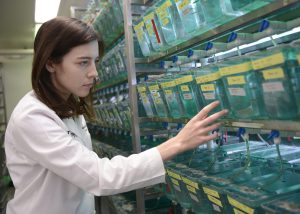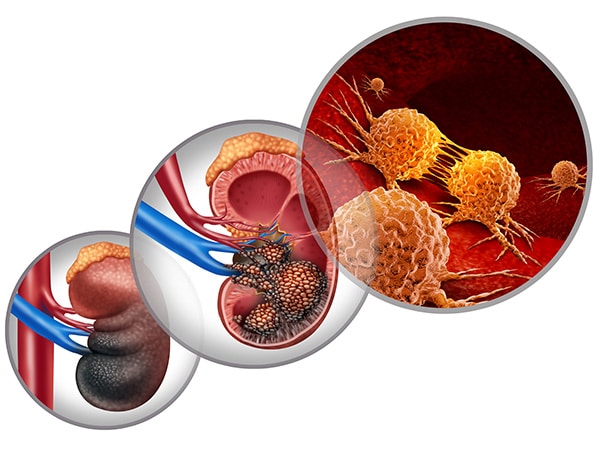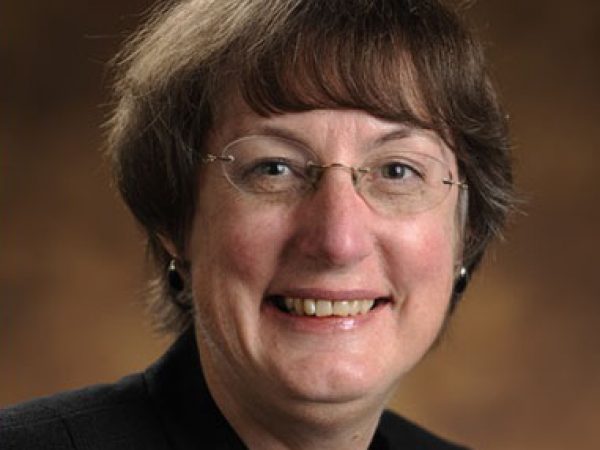A Passion for Pediatric Sarcoma Research
Sarcomas are malignancies of the connective tissues of the body, comprising a diverse collection of different cancers that arise in cartilage, muscle, blood vessels, fat, bone, and other supportive tissues. While considered a rare form of cancer, overall incidence rates for sarcomas have increased over the last three decades. In 2016, it is estimated that about 12,000 new cases of soft tissue sarcoma and 3,000 cases of osteosarcoma (sarcoma occurring in bone) will be diagnosed.
Like many cancer types, sarcoma does not just affect adults. Pediatric sarcomas account for roughly 7 percent of all pediatric cancer cases, the most common of which is rhabdomyosarcoma (sarcoma occurring in muscle). Genevieve Kendall, PhD, a postdoctoral fellow at the University of Texas Southwestern Medical Center and recipient of the 2015 QuadW Foundation-AACR Fellowship for Clinical/Translational Sarcoma Research, has focused her research on this specific form of sarcoma, with the ultimate goal of developing new animal models and applying them to identify active small molecules or treatment strategies that could be implemented to improve patient outcomes.
“I realized early on that I wanted my research to help people,” Kendall recalls. “I chose to focus my career on pediatric cancer because it is heartbreaking what these children have to face at such young ages, and it is also incredibly challenging to understand and cure.”
Though progress has been made recently, part of this challenge includes the need for a diverse set of animal models to recapitulate the spectrum of the disease. During her training as a postdoctoral fellow in the lab of James Amatruda, MD, PhD, Kendall has learned the immense utility of zebrafish in modeling human pediatric cancer. “Zebrafish are a powerful complementary vertebrate model system,” says Kendall. “Particularly for my research on rhabdomyosarcoma, zebrafish can span the spectrum of understanding the developmental biology of the disease, and can also be utilized in translational medicine applications.”
Kendall’s current research interests in rhabdomyosarcoma are a natural complement to her predoctoral work, where she studied Duchenne muscular dystrophy under the mentorship of Stanley Nelson, MD, and Carrie Miceli, PhD, at the University of California, Los Angeles.
“In my graduate work, I used cell culture and mouse models to examine muscle development and signaling pathways from the perspective of their misregulation in this muscle-wasting disease,” she says. “Rhabdomyosarcoma is also a misregulation of muscle development, however with a different end result – the development of tumors displaying features of primitive skeletal muscle.”
A solid background in molecular biology and translational medicine, gained during her predoctoral training and now being further refined during her postdoctoral fellowship, also contributes to Kendall’s work. “This foundation ensures that I can address the kinds of questions that need to be asked to improve patient outcomes, such as: What are the underlying molecular mechanisms of carcinogenesis, what is the cell of origin, how can we apply animal models for high-throughput drug discovery,” she says. “This knowledge has proven to be directly translatable in my current research.”
While Kendall is now at the end of her QuadW-AACR fellowship, she is just getting warmed up in terms of her career success.

As a testament to her research success, Kendall was selected as one of the 2016 NextGen Stars at the AACR Annual Meeting 2016, where she presented her fellowship research. But her engagement with the cancer community is not limited to the realm of scientific research. Kendall was also recently appointed as a member of the AACR Associate Member Council Communications Committee and is connected with the QuadW Board in Dallas. “I am proud to have the opportunity to represent AACR, QuadW, and UT Southwestern as a promising young investigator focused on clinical and translational sarcoma research,” she says.
Indeed, the future for this rising star in the field of pediatric sarcoma appears bright, as she continues to demonstrate a clear focus towards her career path in cancer research. “My professional goal is to conduct independent research at an academic institution developing translational models of pediatric sarcomas using zebrafish systems,” she says. “I will be interviewing for faculty positions in the next few years.”




